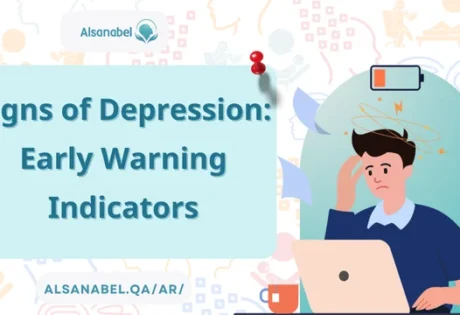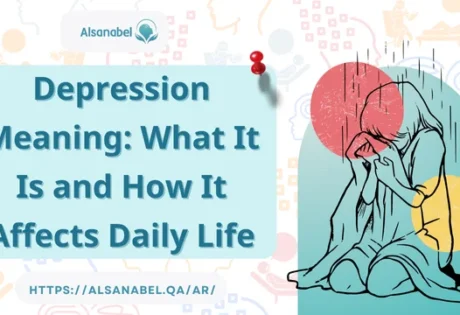
Depression is one of the most common yet misunderstood mental health conditions, affecting millions of people worldwide. Despite its prevalence, many individuals struggle to recognize its signs and seek the help they need. Understanding the various symptoms and how they manifest in different people is essential for early intervention and effective treatment. In this comprehensive article, we will explore the nuances of depression symptoms, highlight the key indicators of depression, and provide actionable insights into recognizing and addressing this condition.
Understanding Depression: A Closer Look
Depression is more than just feeling sad or down for a few days. It is a persistent mental health disorder that impacts thoughts, emotions, behaviors, and even physical health. While everyone may feel sad occasionally, depression involves a prolonged state of emotional distress that interferes with daily functioning.

Common Emotional Indicators
1. Persistent Sadness or Hopelessness
One of the most noticeable signs of depression is an overwhelming sense of sadness that doesn’t fade. This sadness often feels unshakable and may be accompanied by feelings of hopelessness or despair.
2. Loss of Interest in Activities
People with depression often lose interest in hobbies, activities, or relationships they once enjoyed. This symptom, known as anhedonia, is a hallmark of major depression symptoms and is often difficult for individuals to articulate.
3. Increased Irritability or Frustration
Many individuals experience heightened irritability or frustration, even over seemingly trivial matters. This is particularly notable in depression in men, where emotional distress often manifests as anger rather than sadness.
Physical Manifestations of Depression
1. Changes in Sleep Patterns
Depression often disrupts sleep, leading to insomnia or excessive sleeping. Both extremes can exacerbate feelings of fatigue and lethargy, further complicating an individual’s ability to function.
2. Appetite and Weight Fluctuations
A significant symptom of clinical depression includes noticeable changes in appetite. Some individuals may lose interest in eating, while others might turn to food for comfort, leading to weight gain or loss.
3. Chronic Fatigue
A pervasive sense of exhaustion is common among those experiencing depression. This fatigue often persists regardless of sleep or rest, making even the simplest tasks feel insurmountable.
Behavioral and Cognitive Changes
1. Difficulty Concentrating
Struggling to focus, make decisions, or remember details is a common aspect of depression. This symptom can significantly impact professional and personal responsibilities.
2. Social Withdrawal
People experiencing depression may isolate themselves from friends and family, feeling disconnected or believing they are a burden to others.
3. Increased Risk-Taking Behaviors
In some cases, individuals may engage in risky behaviors, such as substance abuse or reckless spending, as a way to cope with their emotional pain.
Specific Considerations for Depression in Men
Depression can present differently in men than in women. For instance, depression in men may include symptoms such as increased aggression, physical complaints (e.g., headaches or back pain), and a reluctance to discuss emotions. Recognizing these unique signs is critical for supporting male individuals struggling with depression.
Diagnosing Depression
Diagnosing depression involves a multi-faceted approach that combines clinical assessments, patient interviews, and diagnostic tools. Healthcare providers look for a consistent presence of symptoms of clinical depression over a specific period, typically two weeks or more. They also rule out other medical conditions that might mimic depression.
Treatment Options for Depression
1. Psychotherapy
Talk therapy, including cognitive-behavioral therapy (CBT) and interpersonal therapy (IPT), is highly effective in addressing depression. These therapies help individuals reframe negative thoughts and develop coping strategies.
2. Medications
Antidepressants, such as selective serotonin reuptake inhibitors (SSRIs), can help alleviate major depression symptoms by balancing brain chemicals. However, these medications often require careful monitoring and adjustments.
3. Lifestyle Changes
Incorporating regular exercise, a balanced diet, and mindfulness practices can complement traditional treatments and improve overall mental health.
Helping Someone with Depression
Supporting a loved one with depression requires empathy, patience, and understanding. Encouraging them to seek professional help at Al Sanabel Specialized Psychiatric Center In Qatar, listening without judgment, and being available for support are crucial steps in their recovery journey.
Addressing Misconceptions about Depression
There are numerous myths surrounding depression, such as the belief that it is simply a weakness or something that can be “snapped out of.” Educating the public about the biological, psychological, and environmental factors contributing to depression is vital for reducing stigma and encouraging treatment.
Answering Common Questions

1. What are the symptoms of depression?
Depression symptoms include persistent sadness, loss of interest in activities, changes in appetite and sleep, fatigue, irritability, difficulty concentrating, and social withdrawal.
2. How is depression diagnosed?
Depression is diagnosed through clinical assessments, interviews, and standardized diagnostic criteria, such as those outlined in the DSM-5.
3. What treatments are available for depression?
Treatment options include psychotherapy, medications, lifestyle changes, and support groups.
4. Can depression go away on its own?
While mild cases of depression may improve over time, professional intervention is often necessary to prevent recurrence and address underlying causes.
5. How can I help someone with depression?
Providing emotional support, encouraging professional help, and being patient are key ways to assist someone dealing with depression.
Understanding and recognizing depression symptoms is the first step in addressing this complex mental health condition. Whether through self-awareness or supporting a loved one, acknowledging the importance of professional treatment and emotional support can make a significant difference. By fostering empathy and educating ourselves about the signs and treatments of depression, we can contribute to a more compassionate and supportive society.


